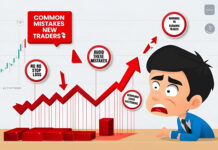our special envoy to Helsinki,
“This will not be a Congress on Orban”, assured a few days ago a member of the EPP. It is clear that the person concerned was a little too advanced. The shadow of the Hungarian prime minister plane, in fact, on the conference centre of Helsinki, which is held during two days the european right. It was at this time that the EPP has appointed the German Manfred Weber as spitzenkandidat for the european elections in may 2019.
on Thursday morning, several big european leaders were keen to warn Viktor Orban. The Polish prime minister Donald Tusk, president of the Council, has not spared even though he did not refer to it. “If you replace liberal democracy by an authoritarian regime, you’re not a christian-democrat”, he insisted. A little later, Jean-Claude Juncker has denounced those who, he said, “has no place in the EPP”. “There is no democracy without respect for the rule of law and freedom of the press”, has he hammered. In the aftermath, Angela Merkel has taken care also to pass on his message when she spoke of Europe, “democracy, freedom of opinion, freedom of research”. And to insist: “All this must be defended”.
The EPP did everything so that there are no sparks around Viktor Orban, while his case makes for months of the waves within the party. In September, a majority of meps EPP had voted in favour of article 7, which aims to punish the put in danger the rule of law within a member State. Only 57 – 219 – had voted against it, including three French. An episode that had been experienced as a blow for Viktor Orban.
if Orban is a liability to the leaders of the EPP. It was necessary to ease the pressure, making sure not to give the impression of letting go in the face of the Hungarian prime minister. The EPP has no incentive to be angry or to exclude a party – the Fidesz – and his thirty meps as the european elections could be difficult for the european right. Interviewed on numerous occasions on the subject, Joseph Daul reminded at regular intervals that for there to be exclusion of the EPP, it would be necessary that the seven parties from five countries should make the request. “Never, no country will go it alone. It should be a kind of coalition,” says an mep.
Viktor Orban puts water in his wine
where this resolution submitted to a vote of the battalions of the delegates present on site – more than 700 – and devoted to the protection of european values and the safeguarding of democracy. If the name of Viktor Orban is not mentioned, it is he who is referred to. Wednesday, at the end of the day, the resolution was put to a vote in an expeditious manner. In the room plunged into darkness, hundreds of hands went up for the vote. But several hundred delegates also have not moved. No abstentions, no votes against not more. And no applause after the announcement of the resolution adopted. The two masters of ceremony are then passed to the following resolution in the general indifference.
And on Thursday morning, Viktor Orban himself has put in his own, careful not to put oil on the fire in the short speech of five minutes delivered to the hundreds of delegates gathered in the plenary. It is income for sources to help persuade the audience. Recalling that it was Helmut Kohl who had asked the Fidesz to join the EPP, the Hungarian prime minister added that the ex-chancellor of germany, so dear to the CDU, “was a man who saw in this party a family and who knew that in a family, there can be disagreement but hold together”. Orban has made a low profile on the shocks of the last few weeks within the party around his case, choosing to load “the socialists, the liberals and the Greens” who are “working for a Europe that does not have roots and spiritual identity”. Emmanuel Macron has not been specifically mentioned but it has been targeted by the”enfant terrible” of the EPP, as they are called by the chairman of the party, Joseph Daul. “Never believe those who build their personal ambitions by dividing the EPP with accusations of the socialist and liberal”, has launched Orban. Clearly, the Hungarian prime minister has chosen to put water in his wine, and not to make waves at the time where there is an urgent need for the party to come together.









